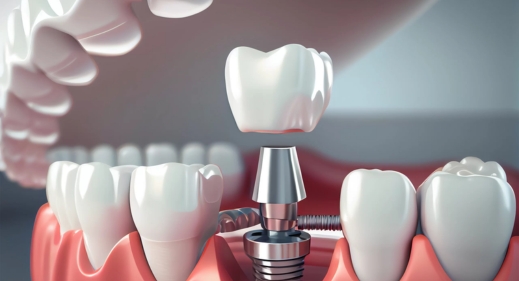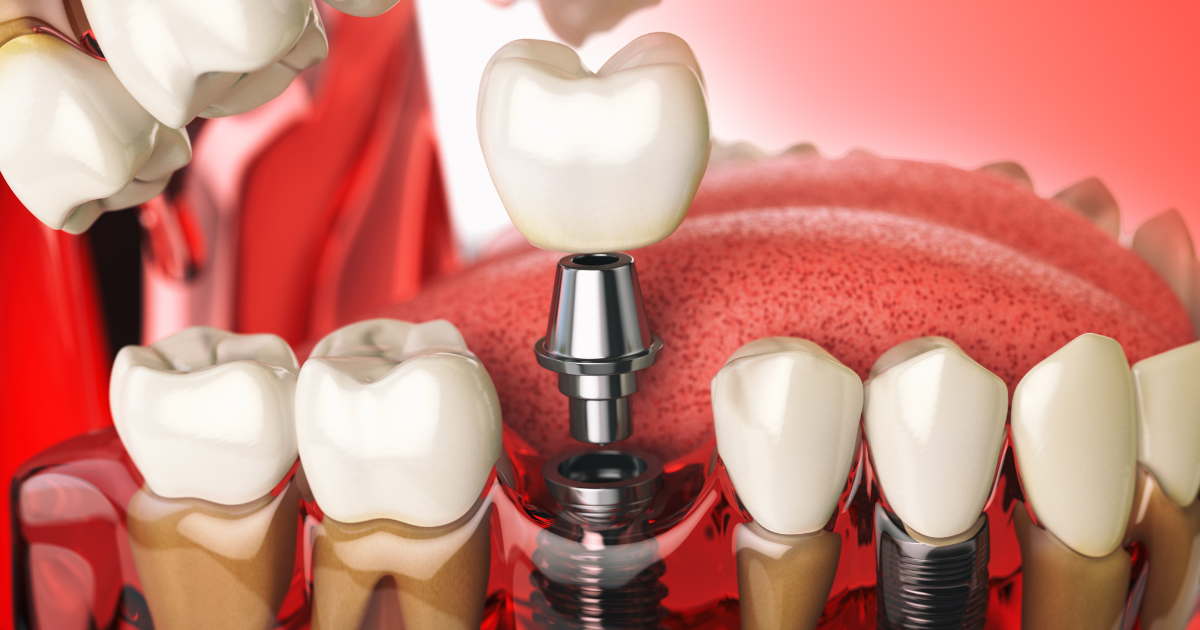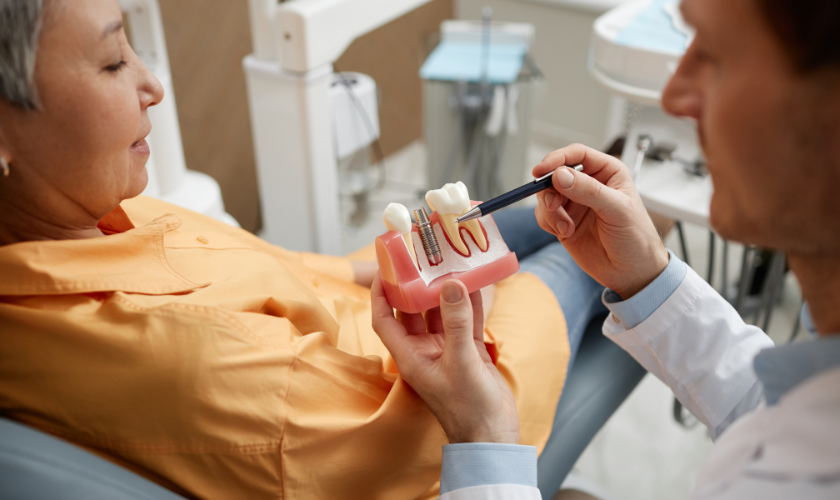943 Finchley Rd, London NW11 7PE
Exploring Contemporary Options Beyond Dentures for Tooth Replacement
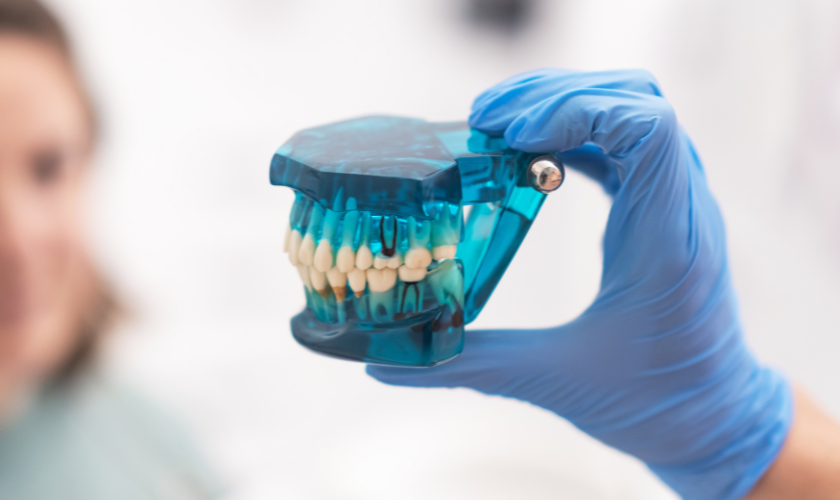
In the realm of dental care, tooth replacement options have evolved beyond traditional dentures. Today, contemporary solutions like dental implants and snap-in dentures offer more natural-looking and durable alternatives.
Dental implants, hailed as a groundbreaking innovation, provide a permanent solution for missing teeth by replacing both the tooth root and crown. On the other hand, snap-in dentures combine the stability of implants with the convenience of removable dentures. These advancements have revolutionised tooth replacement, offering patients improved comfort, functionality, and aesthetics.
In this blog, we will delve into the world of modern tooth replacement options, exploring the benefits, procedures, and considerations associated with dental implants, snap-in dentures, and other contemporary alternatives. By the end, you’ll have a comprehensive understanding of these options, empowering you to make informed decisions about your dental health and well-being. Read on to discover the possibilities beyond traditional dentures.
Dental Implants
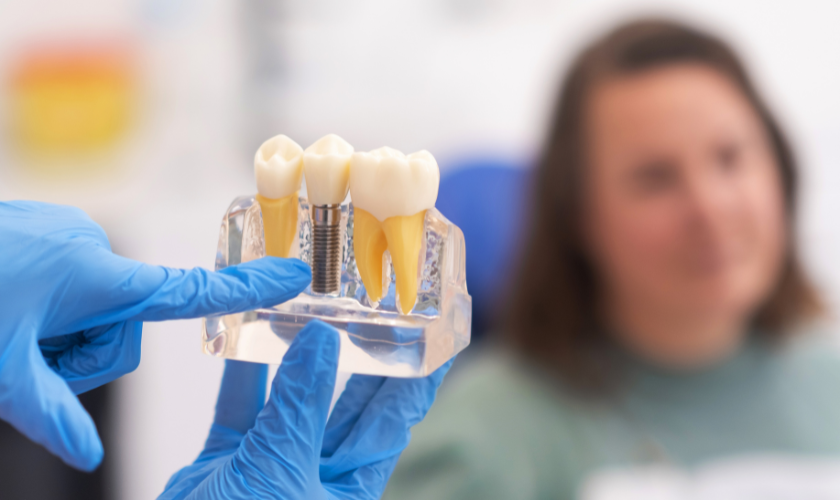
Dental implants are a revolutionary solution for replacing missing teeth, offering a permanent and natural-looking alternative to traditional dentures. They consist of titanium posts that are surgically placed into the jawbone, serving as artificial tooth roots onto which replacement teeth are mounted.
- Natural-Looking Replacement: Dental implants closely resemble natural teeth in appearance, providing a seamless and aesthetically pleasing smile.
- Enhanced Stability and Functionality: Unlike removable dentures, implants are securely anchored to the jawbone, offering stability and allowing for normal chewing and speaking.
- Preservation of Jawbone: Implants stimulate the jawbone, preventing bone loss and preserving facial structure.
- Long-Term Solution: With proper care, dental implants can last a lifetime, making them a durable and cost-effective option in the long run.
- Improved Oral Health: Implants do not require altering adjacent teeth, promoting better oral hygiene and reducing the risk of decay or damage to surrounding teeth.
The procedure for getting dental implants typically involves several steps:
- Initial Consultation: Your dentist evaluates your oral health and determines if you’re a suitable candidate for implants.
- Implant Placement: During a minor surgical procedure, the titanium posts are surgically implanted into the jawbone.
- Osseointegration: Over the next few months, the implants fuse with the jawbone through a process called osseointegration, providing a stable foundation for the artificial teeth.
- Abutment Placement: Once the implants have integrated with the jawbone, abutments are attached to the implants to connect them to the replacement teeth.
- Placement of Replacement Teeth: Customised crowns, bridges, or dentures are attached to the abutments, completing the restoration process.
Dental implants offer numerous benefits and a high success rate, making them a preferred choice for many individuals seeking a permanent solution for missing teeth.
Snap-in Dentures
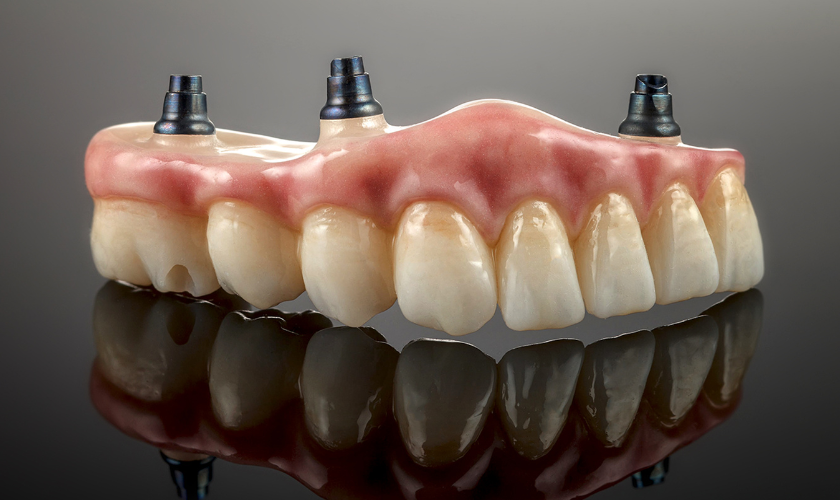
Snap-in dentures, also known as implant-supported overdentures, offer a modern alternative to traditional removable dentures. They combine the stability of dental implants with the convenience of removable dentures, providing a secure and comfortable solution for individuals with missing teeth.
- Implant Support: Snap-in dentures are secured in place by dental implants that are surgically placed into the jawbone, offering superior stability compared to traditional dentures.
- Improved Comfort: With snap-in dentures, there’s no risk of slippage or discomfort associated with traditional dentures, allowing for confident speaking and eating.
- Enhanced Chewing Efficiency: The stability provided by dental implants enables better chewing efficiency, allowing for a wider range of foods to be enjoyed.
- Preservation of Jawbone: Like dental implants, snap-in dentures help preserve the jawbone by stimulating bone growth, preventing deterioration and maintaining facial structure.
- Easy Maintenance: Snap-in dentures can be easily removed for cleaning and maintenance, ensuring optimal oral hygiene and preventing oral health issues.
The process of getting snap-in dentures typically involves the following steps:
- Consultation and Evaluation: Your dentist assesses your oral health and determines if you’re a suitable candidate for snap-in dentures.
- Implant Placement: Dental implants are surgically placed into the jawbone, providing a stable foundation for the dentures.
- Healing Period: After implant placement, a healing period of several months is required for the implants to fuse with the jawbone through osseointegration.
- Abutment Placement: Once osseointegration is complete, abutments are attached to the implants to connect them to the dentures.
- Denture Fabrication: Customised dentures are fabricated to fit securely onto the abutments, providing a comfortable and natural-looking restoration.
Snap-in dentures offer numerous advantages over traditional dentures, making them a popular choice for individuals seeking a more stable and reliable tooth replacement option.
Dental Bridges
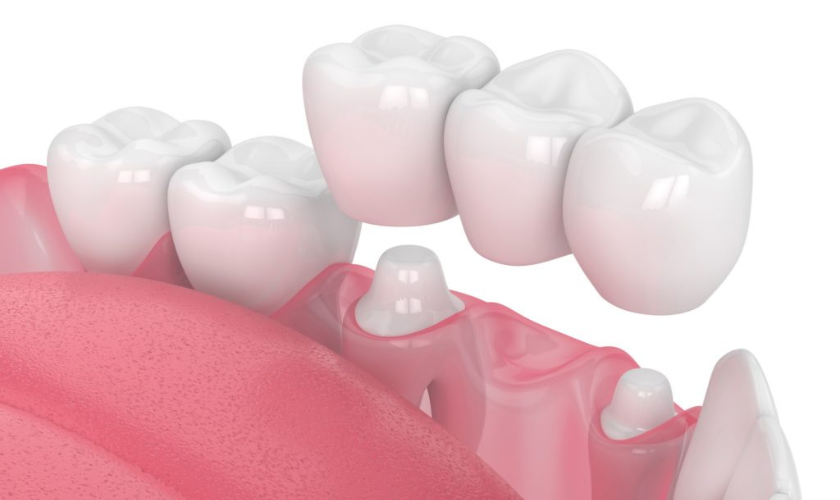
Dental bridges are fixed dental restorations used to replace one or more missing teeth by bridging the gap between surrounding teeth. They consist of artificial teeth called pontics, which are anchored to adjacent natural teeth or dental implants for support.
- Traditional Bridges: These are the most common type of dental bridges, consisting of pontics held in place by dental crowns on the adjacent natural teeth.
- Cantilever Bridges: Cantilever bridges are similar to traditional bridges but are supported by a dental crown on only one adjacent tooth.
- Maryland Bridges: Also known as resin-bonded bridges, Maryland bridges use metal or porcelain wings bonded to the backs of adjacent teeth for support.
- Implant-Supported Bridges: These bridges are anchored to dental implants surgically placed into the jawbone, offering enhanced stability and longevity.
Benefits
- Restores function and aesthetics by filling the gap left by missing teeth.
- Prevents adjacent teeth from shifting out of position.
- Provides a durable and long-lasting tooth replacement solution.
Drawbacks
- Requires the preparation of adjacent teeth for crown placement in traditional bridges.
- May not be suitable for individuals with inadequate adjacent teeth or jawbone structure.
- Implant-supported bridges involve a surgical procedure and may require a longer treatment time.
All-on-4 Implants
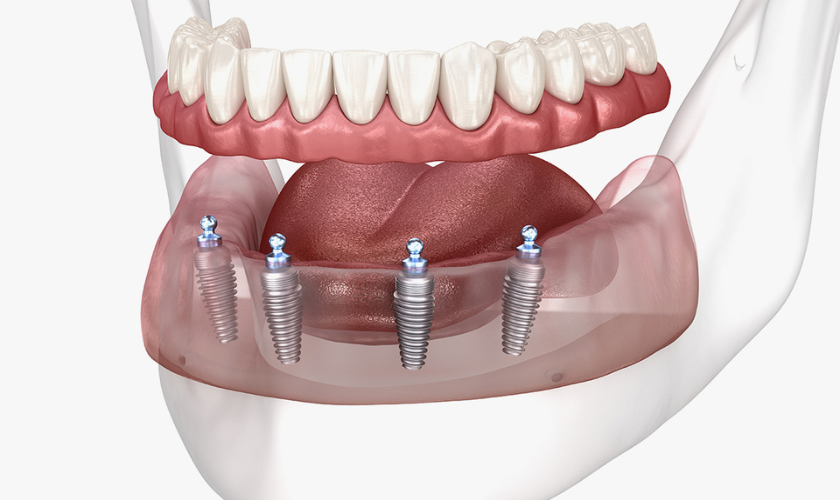
All-on-4 implants are a revolutionary dental implant technique used to restore an entire arch of missing teeth with just four implants. Unlike traditional implants, which require multiple implants for support, All-on-4 utilises strategically placed implants for maximum stability and support.
- Minimal Implants: All-on-4 implants require only four implants per arch, making them a cost-effective and efficient solution for full-mouth restoration.
- Angled Implant Placement: The implants are strategically angled to maximise contact with the jawbone, providing optimal stability and reducing the need for bone grafting.
- Immediate Loading: In many cases, temporary prosthetic teeth can be attached to the implants on the same day as the surgery, allowing for immediate function and aesthetics.
Benefits
- Provides a fixed, permanent solution for individuals with significant tooth loss or edentulism.
- Eliminates the need for removable dentures, enhancing comfort and confidence.
- Offers shorter treatment times and reduced overall costs compared to traditional implant-supported prosthetics.
All-on-4 implants are ideal for individuals seeking a comprehensive and efficient solution for full-mouth restoration, particularly those who may not be candidates for traditional implants due to bone loss or other factors.
Resin-Bonded Bridges
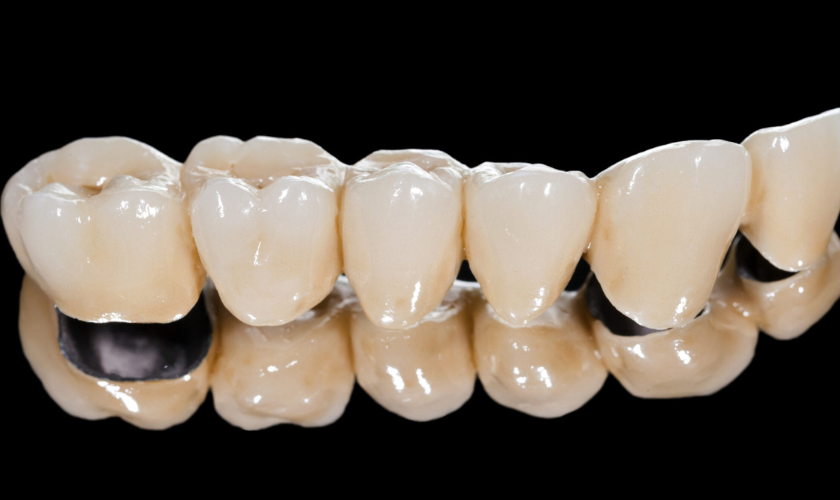
Resin-bonded bridges, also known as Maryland bridges, are a type of dental bridge used to replace missing teeth, particularly in the front of the mouth. Unlike traditional bridges, resin-bonded bridges do not require the adjacent teeth to be extensively prepared with dental crowns for support. Instead, they rely on metal or porcelain wings bonded to the backs of adjacent teeth for stability.
- Minimal Tooth Preparation: Resin-bonded bridges preserve the structure of adjacent teeth as they do not require extensive preparation for crowns.
- Conservative Approach: They offer a conservative and less invasive option for tooth replacement compared to traditional bridges.
- Aesthetically Pleasing: Resin-bonded bridges blend seamlessly with natural teeth, providing a natural-looking restoration.
Advantages
- Preserve the integrity of adjacent teeth by avoiding the need for extensive tooth preparation.
- Quick and minimally invasive procedure, often requiring only one dental visit.
- Suitable for patients with minimal bone support or those who prefer a less invasive treatment option.
Limitations
- Not suitable for replacing multiple missing teeth or molars due to limited support and stability.
- May not be as durable as traditional bridges or dental implants and may require replacement over time.
- Requires good oral hygiene practices and regular dental visits to ensure longevity and prevent complications.
Resin-bonded bridges are an excellent option for individuals seeking a conservative and aesthetically pleasing solution for single-tooth replacement. However, they may not be suitable for everyone. So, it’s essential to consult with a dentist to determine the best treatment option based on individual needs and preferences.
Comparison of Options
When considering tooth replacement options, it’s essential to weigh the pros and cons of each option to determine the best solution for your individual needs. Let’s compare dental implants, snap-in dentures, and other alternatives based on factors such as cost, durability, and maintenance requirements.
Dental Implants
Dental implants offer a permanent and natural-looking solution for missing teeth. They provide superior stability and functionality compared to other options, making them an ideal choice for many individuals. However, dental implants tend to be more costly upfront compared to alternatives like dental bridges and resin-bonded bridges.
Snap-in Dentures
Snap-in dentures combine the stability of dental implants with the convenience of removable dentures. They offer improved comfort and chewing efficiency compared to traditional dentures. While snap-in dentures may require a higher initial investment than conventional dentures, they provide a more secure and long-lasting solution.
Dental Bridges
Dental bridges, including traditional bridges and resin-bonded bridges, are fixed dental restorations used to replace missing teeth. They offer a more affordable option compared to dental implants and provide excellent stability and aesthetics. However, dental bridges may require the preparation of adjacent teeth and may not be as durable as dental implants.
All-on-4 Implants
All-on-4 implants offer a fixed and permanent solution for replacing an entire arch of missing teeth. They provide excellent stability and chewing efficiency, often with fewer implants required compared to traditional implants. While All-on-4 implants may involve a higher initial cost, they offer significant long-term benefits in terms of durability and functionality.
Factors to Consider
- Cost: Dental implants and All-on-4 implants tend to have a higher initial cost compared to dentures. However, they may offer better long-term value due to their durability and longevity.
- Durability: Dental implants, including All-on-4 implants, are known for their durability and ability to last a lifetime with proper care. Snap-in dentures also offer excellent durability compared to traditional dentures.
- Maintenance: Dental implants and snap-in dentures require minimal maintenance, similar to caring for natural teeth. Traditional dentures may require more upkeep, including regular cleaning and occasional adjustments.
In the quest for tooth replacement, exploring contemporary options beyond dentures opens up a world of possibilities. From the stability of dental implants to the convenience of snap-in dentures, there’s a solution to fit every need. Consider factors like cost, durability, and maintenance when making your decision. If you’re ready to take the next step towards a confident smile, visit Lotus Dental And Aesthetics Clinic. We offer dental implants, including solutions like “Teeth In A Day,” snap-in dentures, and a range of other dental services. Schedule your consultation today and discover the perfect solution for your smile transformation.



